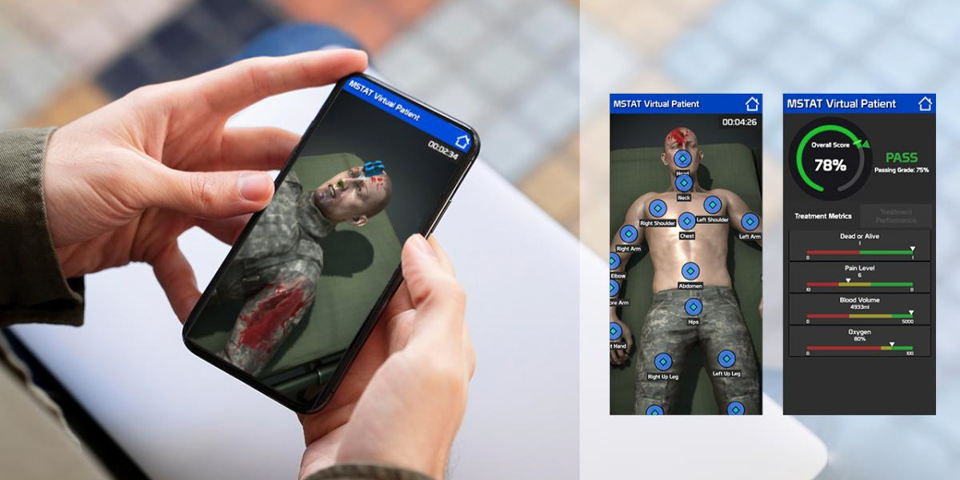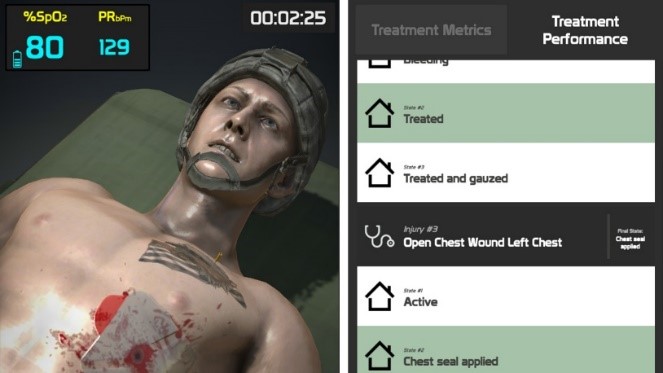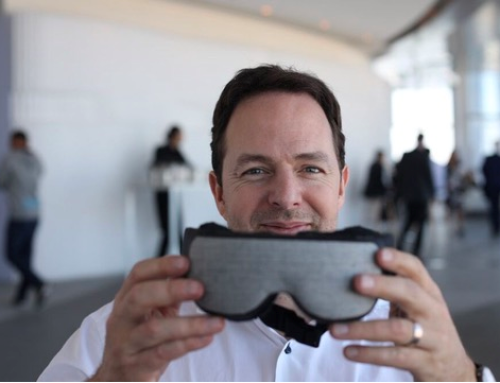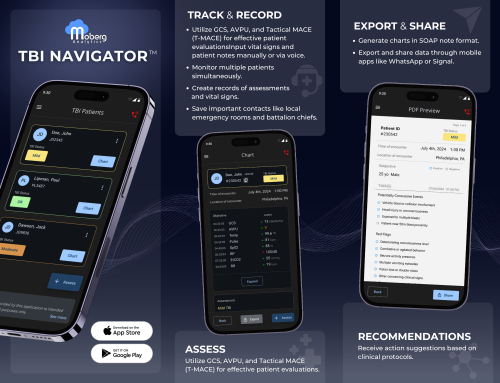Medical training for primary and secondary trauma assessment is vital to military medical personnel; it is the first step in saving the lives of wounded Warfighters. Current approaches include both classroom instruction and high-fidelity training (e.g., using expensive medical manikins or trained patient role players). However, even when combined, these training approaches are not an adequate solution. To ensure trainees are as prepared as possible, trauma assessment training must bridge the gap from lower-cost classroom instruction to high-fidelity training by employing more accessible training options, such as moderate-fidelity virtual environments that can be inexpensive to deploy, yet targeted and effective.
Charles River Analytics is developing the Mobile System for Trauma Assessment Training (MSTAT) that enables on-demand training using a virtual patient. You can read their press release here. Under the MSTAT effort, Charles River Analytics is increasing the technology readiness level (TRL) of their research prototype STAT system and making it viable for DoD transition and commercial markets as an application tailored to mobile devices. The MSTAT Virtual Patient will improve the availability of trauma scenarios in a variety of virtual operational environments necessary for medical professionals to practice, rehearse, and refresh the critical skills of primary trauma assessment according to TCCC for Medical Personnel (TCCC-MP) guidelines.
is developing the Mobile System for Trauma Assessment Training (MSTAT) that enables on-demand training using a virtual patient. You can read their press release here. Under the MSTAT effort, Charles River Analytics is increasing the technology readiness level (TRL) of their research prototype STAT system and making it viable for DoD transition and commercial markets as an application tailored to mobile devices. The MSTAT Virtual Patient will improve the availability of trauma scenarios in a variety of virtual operational environments necessary for medical professionals to practice, rehearse, and refresh the critical skills of primary trauma assessment according to TCCC for Medical Personnel (TCCC-MP) guidelines.
Charles River Analytics has developed a full trauma treatment practice application that can be used on Android devices. To get to this point, they have updated several key features of their MSTAT system including 1) expanding the number of available injuries, 2) tying sets of injuries to realistic mechanisms of injury, and 3) developing an after-action review that shows the patient’s final state and how well the user treated the injuries. Charles River Analytics also updated the user interface and continue to gather feedback to improve the interface.
The next steps for this project are to expand the after-action review to include how well the user adhered to TCCC guidelines and to improve usability through testing with medical experts. Importantly, they will continue to work on integrating their training application with existing training modules.
 This project is funded through MTEC’s Multi-Topic Request for Project Proposals (Solicitation #17-08-MultiTopic) sponsored by the U.S. Army Medical Research & Development Command (USAMRDC). The MSTAT project is led by Co-PIs Dr. Ashley McDermott and Mr. Michael Makivic. Mr. Makivic has led the software development side with support from their talented interface designer, Mr. David Young, and software developers, Mr. Patrick Hosman and Mr. William Manning. Dr. McDermott has led the educational content with tremendous support from Mr. Benjamin Bauchwitz, and Dr. Ryan Kilgore and Ms. Rachel Parkins have done an exceptional job with keeping the project on schedule. Charles River Analytics would like to thank subject matter expert, Dr. John Broach, who has helped develop the trauma training from inception.
This project is funded through MTEC’s Multi-Topic Request for Project Proposals (Solicitation #17-08-MultiTopic) sponsored by the U.S. Army Medical Research & Development Command (USAMRDC). The MSTAT project is led by Co-PIs Dr. Ashley McDermott and Mr. Michael Makivic. Mr. Makivic has led the software development side with support from their talented interface designer, Mr. David Young, and software developers, Mr. Patrick Hosman and Mr. William Manning. Dr. McDermott has led the educational content with tremendous support from Mr. Benjamin Bauchwitz, and Dr. Ryan Kilgore and Ms. Rachel Parkins have done an exceptional job with keeping the project on schedule. Charles River Analytics would like to thank subject matter expert, Dr. John Broach, who has helped develop the trauma training from inception.
About Charles River Analytics:
Charles River Analytics conducts cutting-edge AI, robotics, and human-machine interface R&D to create custom solutions for your organization. Our track record speaks for itself—our implemented solutions enrich the diverse markets of defense, intelligence, medical technology, training, transportation, space, and cyber security. Our customer-centric focus guides us towards problems that matter, while our passion for science and engineering drives us to find impactful, actionable solutions. At Charles River Analytics, we turn research into results.





